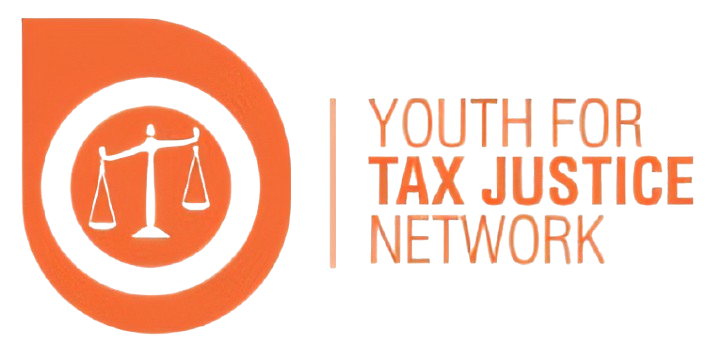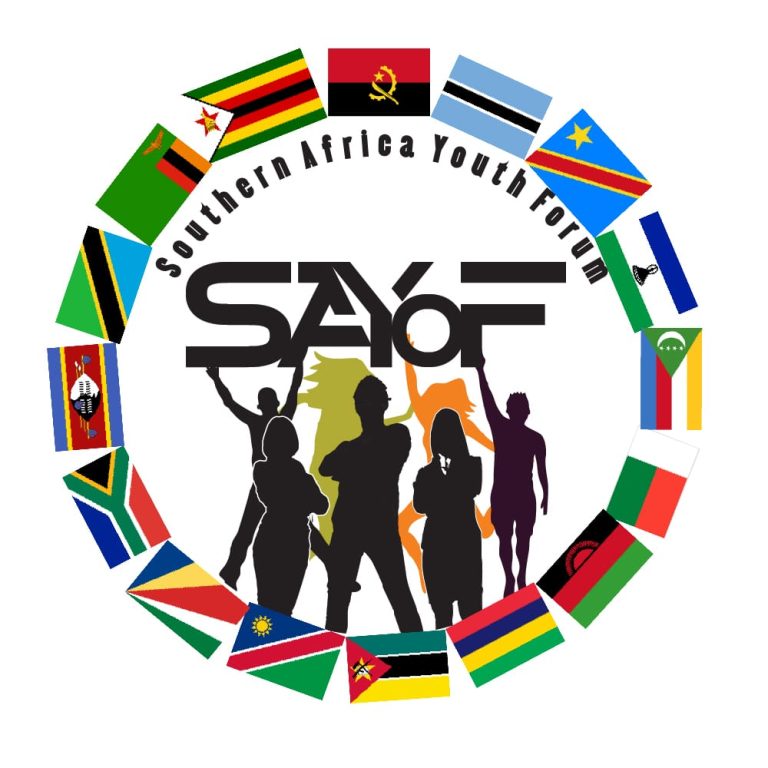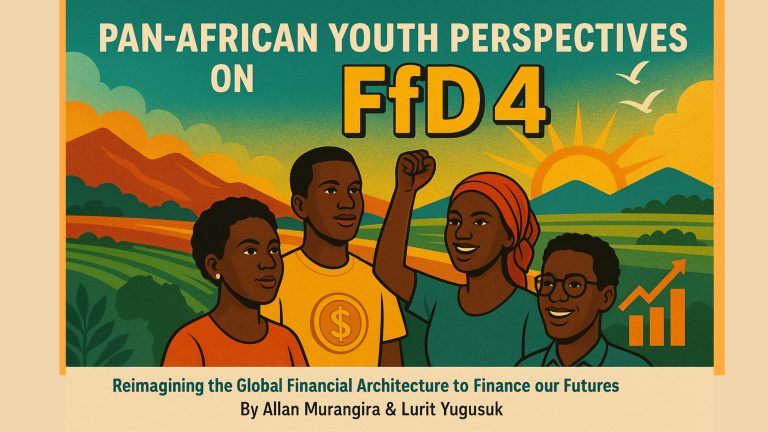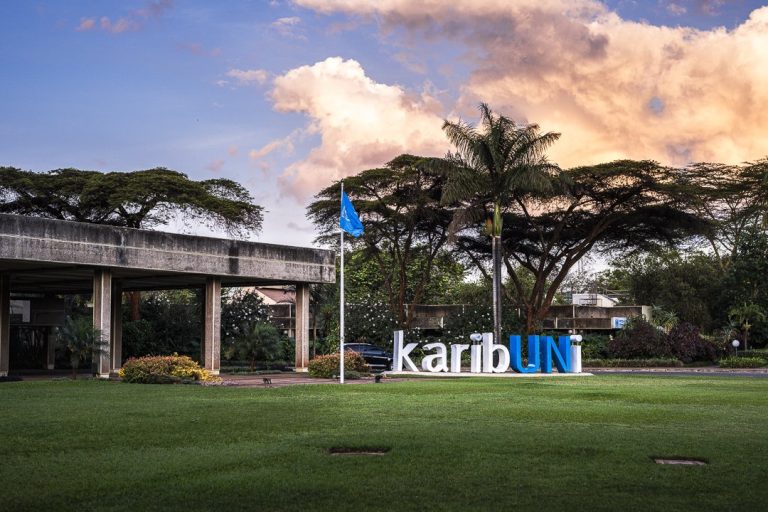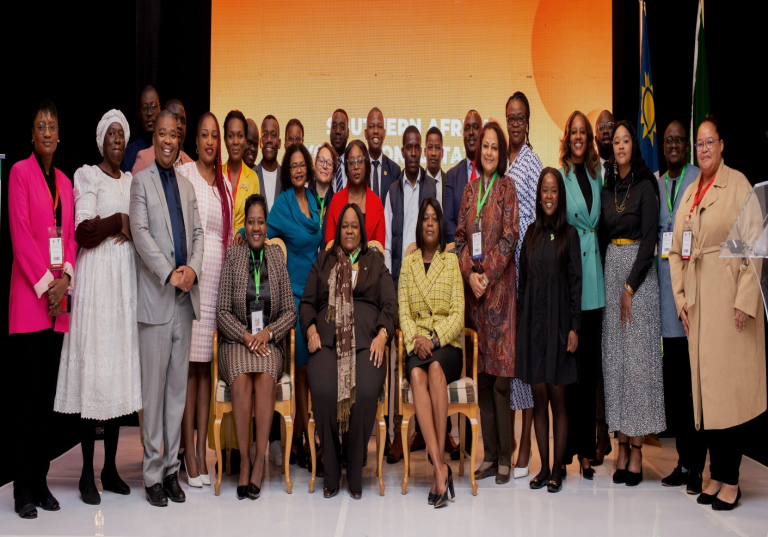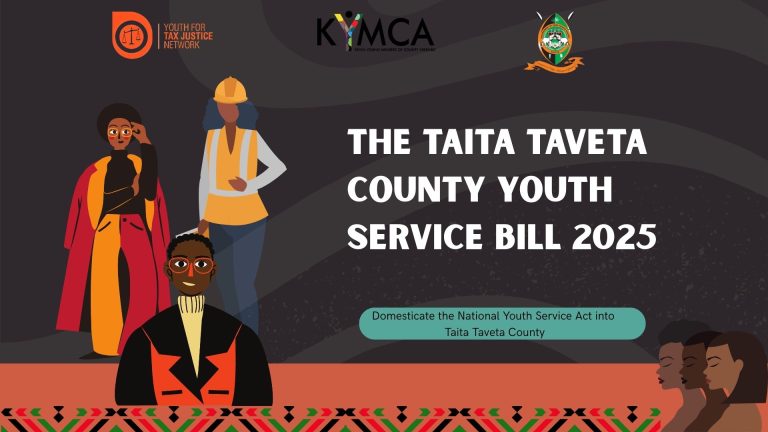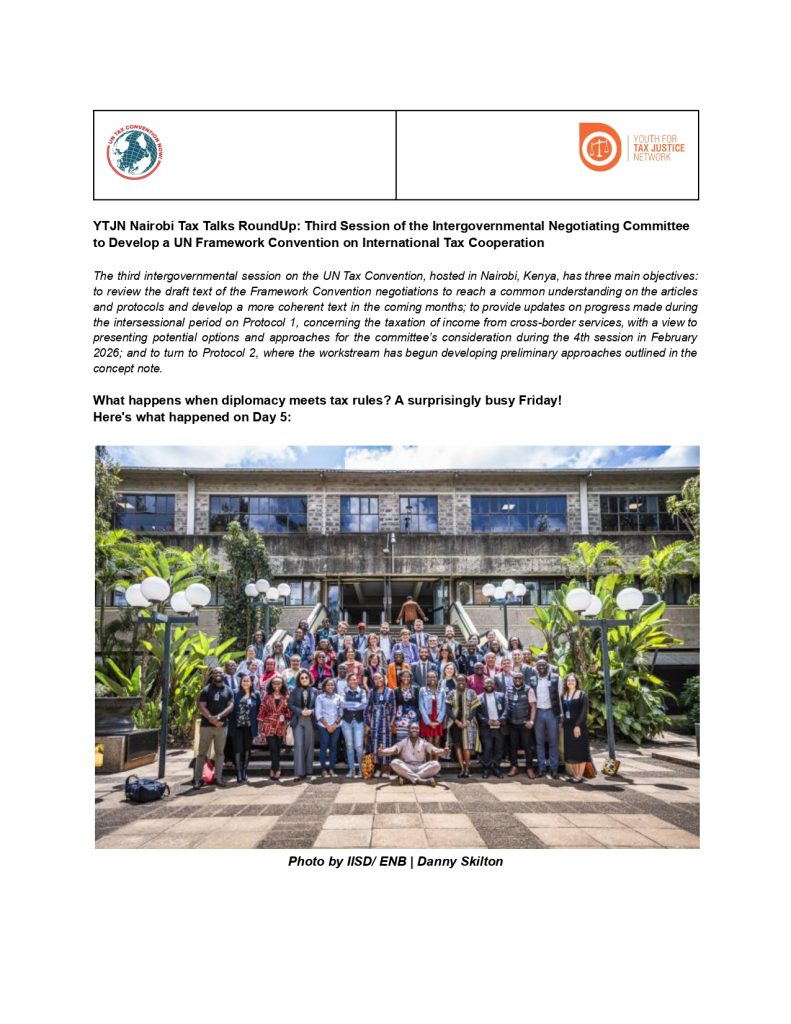
Delegates at the 3rd Session of the Intergovernmental Negotiating Committee (INC3) continued working toward the development of a UN Framework Convention on International Tax Cooperation. Friday’s discussions focused on Article 11 on capacity-building and technical assistance, the digitalization of tax administration, sustainability and funding, roles of the Secretariat and COP, and updates from Workstream II on cross-border services.
Capacity-Building, Tailored Support for Every Country:

Photo by IISD/ ENB | Danny Skilton
A major portion of the day centered on Article 11, exploring how capacity-building could meet the specific development needs and priorities of each country. According to draft issues notes and delegate briefings:
- Tailored approach: Delegates emphasized that capacity-building should respond to the unique needs of each country.
- Beyond skills: Discussions included tools, infrastructure, and resources necessary to strengthen tax administration.
Digitalization of Tax Administration:
Delegates addressed opportunities and challenges arising from the digitalization of tax systems, including adoption of new technologies, data management, and integration with domestic laws. While public sources confirm that digitalization is a recognized challenge in global tax cooperation, specific day‑by‑day discussions are based on delegate updates.

Photo by IISD/ ENB | Danny Skilton
Sustainability & Funding:
The Chair posed questions on sustainable financing of capacity-building efforts, prompting reflection on long-term support mechanisms. Publicly available documentation does not yet verify the full extent of these discussions, but capacity-building funding is a recurring theme in broader INC3 policy notes.
Defining Roles: Secretariat and COP
Delegates debated how responsibilities should be shared:
- Secretariat: Coordination, standard-setting, direct capacity support, and long-term planning.
- COP: Oversight, metrics, and indicators to monitor progress.
The institutional architecture is discussed in draft notes and civil society policy briefs, though detailed daily interventions are not publicly available.
Update From Workstream II: Taxation of Cross-Border Services

Photo by IISD/ ENB | Danny Skilton
The week ended with an update from the Chair of Workstream II on taxation of income derived from the provision of services in a digitalized and globalized economy. According to draft issues notes and delegate briefings:
- Intersessional work has mapped areas of agreement, disagreement, and possible compromise.
- A short paper on economic terms and concepts is expected to be released ahead of February 2026 negotiations.
- Economic modeling of potential approaches is expected in 2026.
- The outline of a “solutions paper,” based on the June 2025 Issues Note, will be discussed in New York next year, with work intensifying in the coming months.
